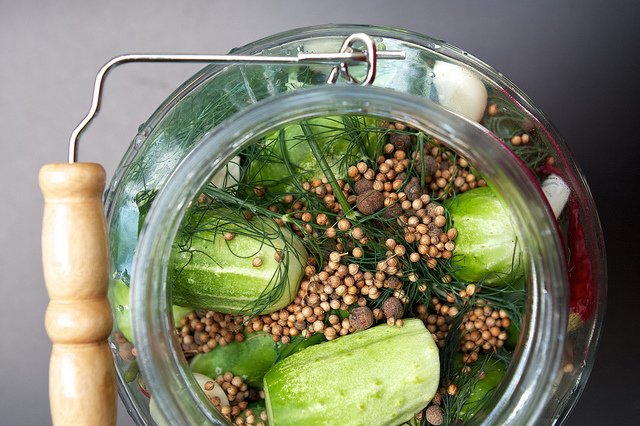You often find yourself powering through life. Little sleep, to-do list long and growing, no time for yourself and this is by no means where it ends. I’ve been there myself.
There was a time in my life when my stress level was so high I couldn’t even go one hour without having a panic attack. Now that’s some stress!
I suffered in this state for months until finally I knew it was time to reach out for help.
In working with a Holistic Practitioner, I learned that one of the first things I needed to address in order to calm my stress was my diet. Stress has a direct effect on the nervous system, so we worked on various dietary adjustments that would nourish and support my nervous system.
Through my experience and education I have learned the six keys to de-stressing using food, and I’d like to share them with you.
1) Kick sugar to the curb. Most of us are aware that sugar isn’t the best thing for us. But did you know that it directly affects the nervous system? Sugar contributes to anxiety, lack of focus, moodiness, depression and hyperactivity to name a few.
In her book Primal Body, Primal Mind, Nora T. Gedgaudas states, “Nothing will ever influence the functioning or dysfunctioning of your…neurotransmitters (or your brain) more than the issue of blood sugar. Neurotransmitters are our main mood and brain regulators, and surges of blood sugar generate…dysregulation of the neurotransmitter serotonin.” Serotonin is responsible for maintaining mood balance.
Get rid of the sugars, get rid of the stress and side effects that come with it.
2) Limit your caffeine intake. Hold up…take away your morning java? I would never. I do realize most of us drink our cup of coffee in the morning to get our day started.
If this is what you do, I’m not saying stop. I am suggesting you try and limit it. Perhaps you start with just a half a cup a day. Or maybe you make a half-caff latte instead, and gradually work your way to less and less.
Caffeine is a stimulant. It stimulates the adrenal glands to release your “fight or flight” hormones adrenaline and cortisol. This is why we get energized with coffee.
Although you may not be in a situation where you are being chased by a bear, your body thinks it is and reacts appropriately.
You would be surprised how different you could feel without caffeine in your life.
3) Take cod liver oil. For optimum nervous system function, our brain needs healthy omega-3 fats and certain vitamins and minerals including Vitamins A and D. Cod liver oil is an excellent source of all three. The best kind out on the market by far is Blue Ice fermented cod liver oil and can be found here.
4) Eat sauerkraut and fermented veggies. Some love it, some hate it, but it is one of the most important ingredients for a healthy brain. Why? Raw organic sauerkraut contains a plethora of probiotics which combat inflammation in the body. Brain health is directly related to gut health, and we can expect that when there is inflammation in the gut, it affects the brain immensely.
In his book Brain Maker, Dr. David Perlmutter writes, “The good bacteria in a healthy gut are not squatters enjoying free food and lodging. They factor into risk…for brain disorder and mental illness.” Dr. Perlmutter further writes, “The neurons in the gut are so innumerable that many scientists are now calling the totality of them ‘the second brain.’”
The healthier your gut flora, the more likely you are to have a healthy nervous system.
5) Eat organic pastured eggs and wild caught fish. Eggs are essentially a “perfect food.” Contained in their yolks are a high amount of vitamins and minerals, healthy fats, and cholesterol (yes, cholesterol).
Cholesterol can sound frightening, but rest assured natural cholesterol is good for our body, especially the brain. That’s a whole different blog post for another day, but you can trust me on that one for now. Wild caught fish are high in brain boosting omega-3 fats.
6) Drink a calming herbal tea before bed. Calming herbs such as chamomile, lavender and lemon balm can help relax the nervous system for a good night’s rest.
This is a great ritual to begin because not only are you calming your body in that moment, you are actually re-training your body to remain calm on its own on a daily basis regardless of what is going on around you.
These are my top six ways to combat stress using food. I implement all of these in my own life, and they have helped with my stress levels immensely.
Sources:
Primal Body, Primal Mind, by Nora T. Gedgaudas, CNS, CNT
Brain Maker, by David Perlmutter, MD
~
Author: Andrea McLaughlin
Editor: Caroline Beaton
Image: Flickr







Read 0 comments and reply